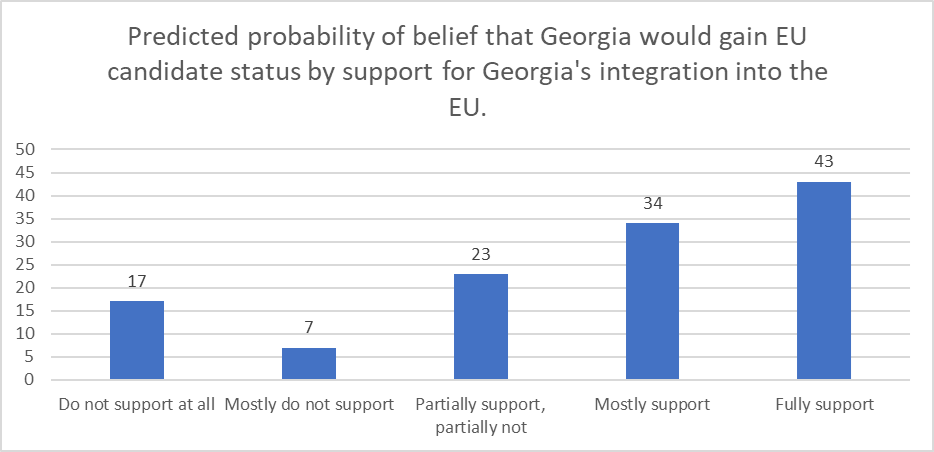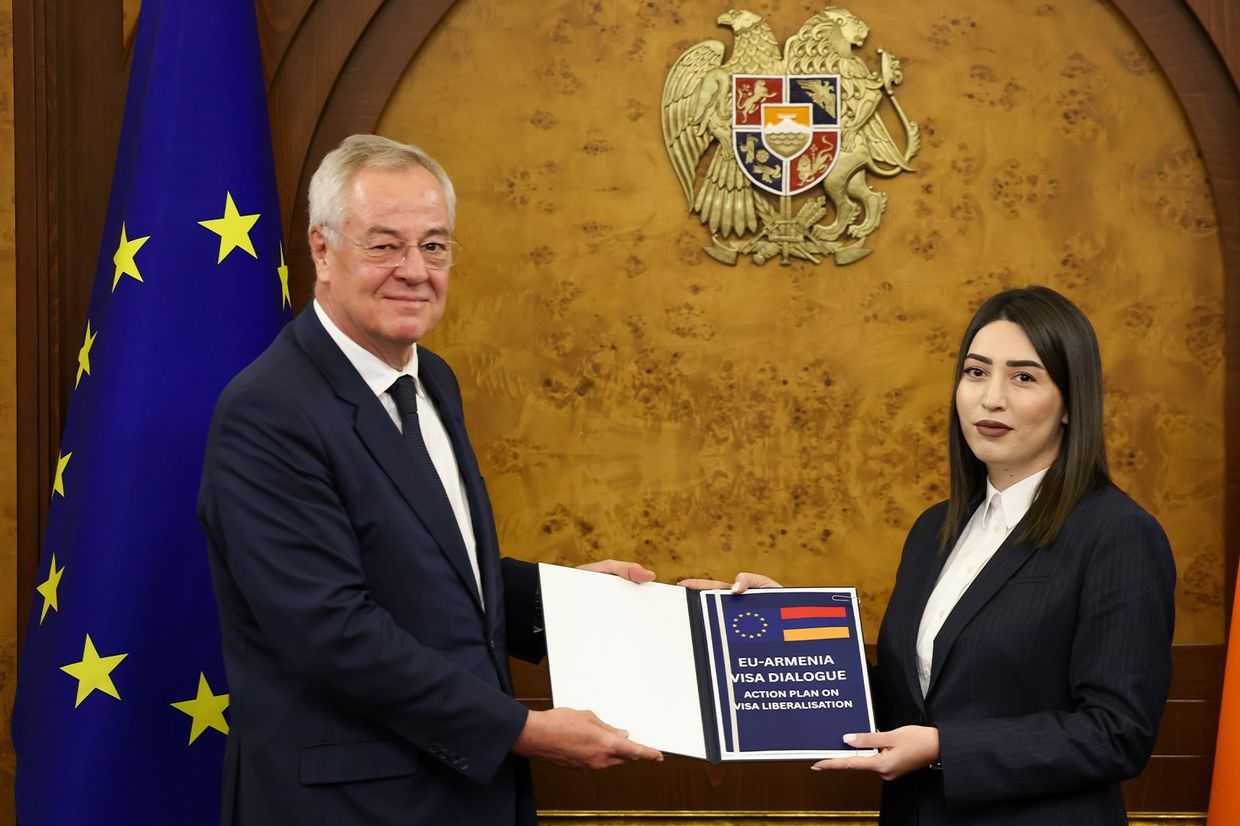
A CRRC survey found that Georgians who want EU candidate status and those who feel positively about the EU are more optimistic about Georgia’s chances of joining the EU, along with older people and those not working in the private sector.
On 8 November, the European Commission recommended that Georgia receive candidate status in the bloc.
Polls conducted by CRRC Georgia prior to the announcement suggested that only 33% of Georgians believed that the country would obtain candidate status. Previous analysis has shown that Georgian Dream supporters were more optimistic about the status being granted, likely at least partially reflecting confidence in the party which they support. But, aside from partisanship, what else predicted whether someone believed Georgia would gain candidate status prior to the European Commission’s announcement?
With regards to social and demographic variables, a few patterns stand out.
Controlling for other factors, older people (55+) were ten points more likely to report that Georgia would gain membership than those 54 and under. People working in the private sector were, on the other hand, less likely to report they believed Georgia would gain candidate status than people working in the public sector or not working.

Whether someone wanted the EU to grant Georgia candidate status was a strong predictor of whether they believed the EU would grant it prior to the announcement. A person who did not support Georgia joining the EU had a 17% chance of believing candidate status would be granted. By comparison, someone who fully supported Georgia’s attempt to join the EU had a 43% chance of believing that Georgia would receive candidate status.

The data suggested that people’s perceptions of the European Union similarly aligned with their predictions. Those who had a very positive perception of the EU had a 50% chance of reporting that they believed Georgia would gain candidate status. In comparison, someone with a very negative view had a 20% chance of believing the country would receive candidate status.

The above data suggest that Georgians who had positive attitudes towards the EU also tended to be optimistic in their expectations regarding the institution’s decision.
Note: The data in this article come from a series of regression models. The first contains the following demographic variables: sex (male or female), age group (18-34, 35-54, 55+), education level (high school or less, vocational education, or higher education), and employment status (not working, works in the private sector, works in the public sector). The following models added 1) whether or not someone supported Georgia’s candidate status, and 2) whether or not the respondent reported a positive or negative perception of the EU.
This article was written by Dustin Gilbreath, a non-resident senior fellow at CRRC Georgia. The article reflects the views of the author alone, and does not necessarily reflect the views of CRRC Georgia or the National Endowment for Democracy.








